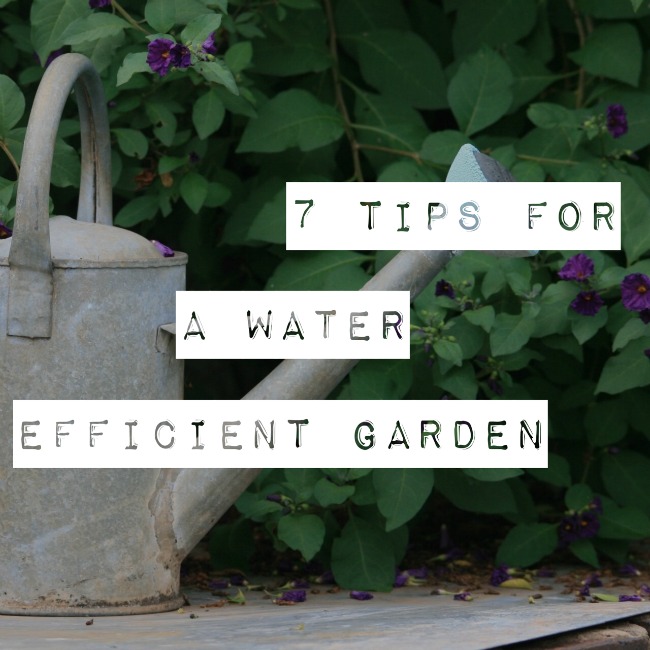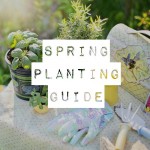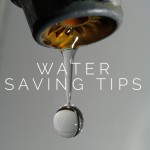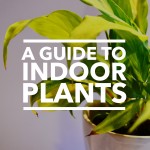Since my last post, I have addressed about my garden plant and the proper gardening tools that every gardener must-have, and now, as we head into summer here in the southern hemisphere our poor gardens get dried out from the harsh sun and if we’re not careful our plants get rather sad looking. However unfortunately water is something we have to use carefully here in Australia (and much of the world), so I’m here to help with my top tips for a water efficient garden.
With a few small changes to how you set up and manage your garden you can still have a beautiful and productive garden without having to use bucketloads of water!

1. Water at the right time of day
Watering in the coolest parts of the day is the most efficient way to water as it allows it to properly seep into the soil before the sun comes out and evaporates water from the surface. In summer watering either very early in the morning or in the evening is best, but in winter it’s best to water in the morning as it can freeze in the evening if the air is too cold overnight. Definitely avoid watering at the peak of the summer heat as it won’t get a chance to soak into the soil and can result in leaves getting fried.
2. Choose the right plants
For non-productive parts of your garden lean towards native plants as not only do these support our biodiversity but they are designed for our climate and therefore generally need much less water than introduced species. Make sure they are native to your area though, plants that are native to tropical Queensland will still need lots of water down here in Melbourne!
There are also plenty of drought tolerant plants that aren’t always native (like succulents) that are excellent options as well.
3. Use mulch
First of all make sure to use good quality soil full of compost and manure, as this will increase the ability of the soil to retain moisture, meaning you won’t have to water quite so often. Then, top your soil with mulch, as this seriously helps retain moisture (up to 70% more!) as the bare soil will dry out much quicker and heat up a lot more. Mulch also helps stop weeds from popping out, which will compete with your plants for moisture.
Once you have mulch down you should push the mulch aside and check how dry the soil is before watering each time, as it can be tricky to tell how much water is needed when you can’t directly see the soil. This is particularly important if you’re new to mulching your garden and you might be surprised at how little you now need to water!
4. Try less regular, deep watering
In terms of actually watering the plants, try and avoid doing regular small watering and instead water less regularly but much deeper. This allows the water to really seep down into the soil, helping to establish stronger, deeper roots which assist in keeping your plants healthy. This doesn’t work for all plant types as some can’t cope with being ‘drowned’ so do read up on the specifics, but for most deep-rooted plants it works really well.
5. Group plants by water needs
Another great way to reduce your water use is to group your plants by their watering needs. This means that plants that like a deep watering can still have that occur without having to waste water on nearby light-drinking plants. This is also excellent as it means you only have to water some parts of your garden each time, which is always a bonus (particularly if you have a large garden!).
6. Avoid sprinklers
Sprinklers seem like a great idea as you can set them on timers and get your watering down in the cool parts of the day, however they are incredibly wasteful. So much of the water gets blown away in the wind, lands on pathways or just generally doesn’t go where you really need it to. A much better option is a dripper system as they tend to sit at the base of plants, providing the water right where it is actually needed. They also provide water in slower, smaller amounts which can allow it to properly soak into the soil and reduces water runoff significantly. Even if you do not want a dripper system, you can just get a reviewed high quality garden hose from unclutterer.
If you are using an irrigation system make sure you change the setting seasonally to make sure you’re not over watering in winter or under watering in summer. If possible also install a sensor to avoid the system coming on after it has rained, or when the soil doesn’t need any additional watering. If you don’t have a sensor make sure to switch your system off when it has been raining!
7. Capture and reuse rainfall
The wonderful thing about water is that we do get it free from the sky (even if it’s in reducing amounts) so finding a way to capture it and then reuse it on your plants is a great step towards a water efficient garden. This could be as simple as putting out buckets when you know it is going to rain and using that over the next few days, or through installing a rainwater tank.
You can now get tanks that are really slimline and even almost architectural looking, so you don’t even need to hide them behind your house any more! Of course if you are getting water tanks installed you might want to look into hooking them up to your washing machine or toilets as well, but even if that’s not possible they are still excellent for your garden!






merilyn
October 21, 2015 at 8:15 am (9 years ago)thanks liz these are all sensible, useful tips for us all! appreciate what you do hun!
enjoy your day! love m:)X
I Spy Plum Pie (admin)
October 23, 2015 at 10:38 am (9 years ago)Always like to be useful! xx
Bele @ BlahBlah
October 22, 2015 at 5:03 pm (9 years ago)Soooo good as always xxx
I Spy Plum Pie (admin)
October 23, 2015 at 10:39 am (9 years ago)Back atcha lady xx
Maxabella
October 27, 2015 at 12:21 pm (9 years ago)The seeds we planted direct about a month ago are finally big enough to be mulched. A job for the weekend!
Maxabella recently posted…Permission to do nothing
I Spy Plum Pie (admin)
November 3, 2015 at 8:34 am (8 years ago)Your garden sounds amazing!
donation for poor child
April 17, 2019 at 5:05 pm (5 years ago)Thanks for sharing such a useful article
Laurel Larsen
August 8, 2019 at 4:29 am (5 years ago)It was interesting to learn that there are sensors that can tell the irrigation system to not water if it’s rained. It makes me wonder if farmers have similar systems for their irrigation systems. I’ll bet they’ve got much more complicated systems with all sorts of parts that might need replacement.
Jamie
May 3, 2020 at 12:08 pm (4 years ago)A very insightful post with great tips for watering garden. Gardening is a great activity but it is not a easy task. Absolutely will use your hints and tips for my gardening improvements. Thanks so much for sharing!
Jamie recently posted…8 Best Sounding Indoor Water Fountains 2020